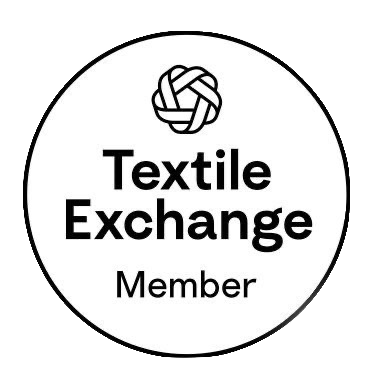
Verification, traceability and compliance in a single SaaS platform.
Reeco verifies the authenticity of environmental claims, tracks all raw materials and components with a verifiable chain of custody, and provides reliable data for environmental accounting—integrated into the Digital Product Passport.
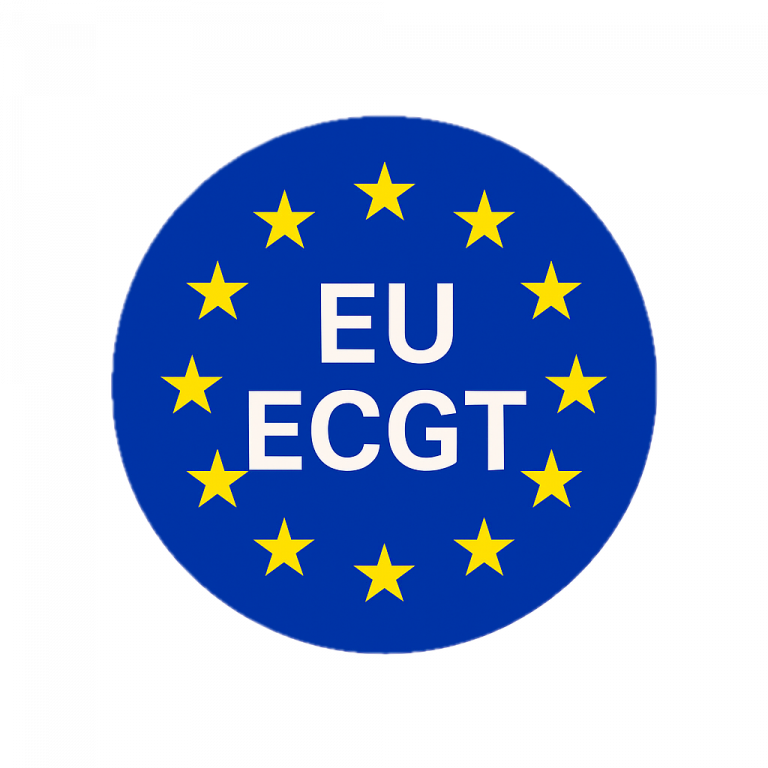
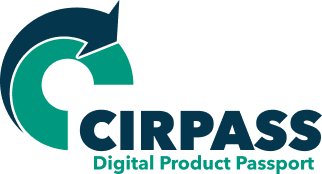
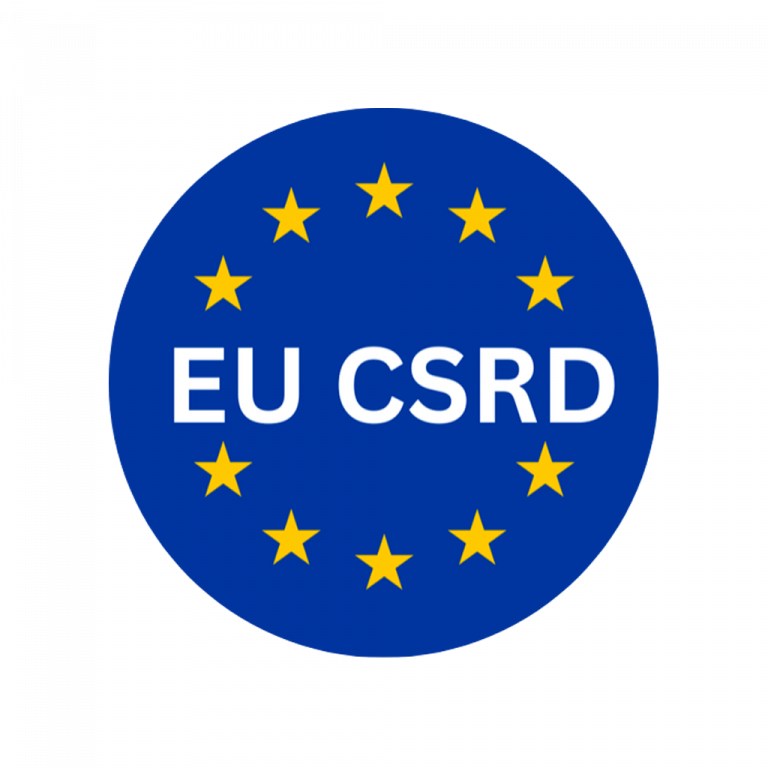
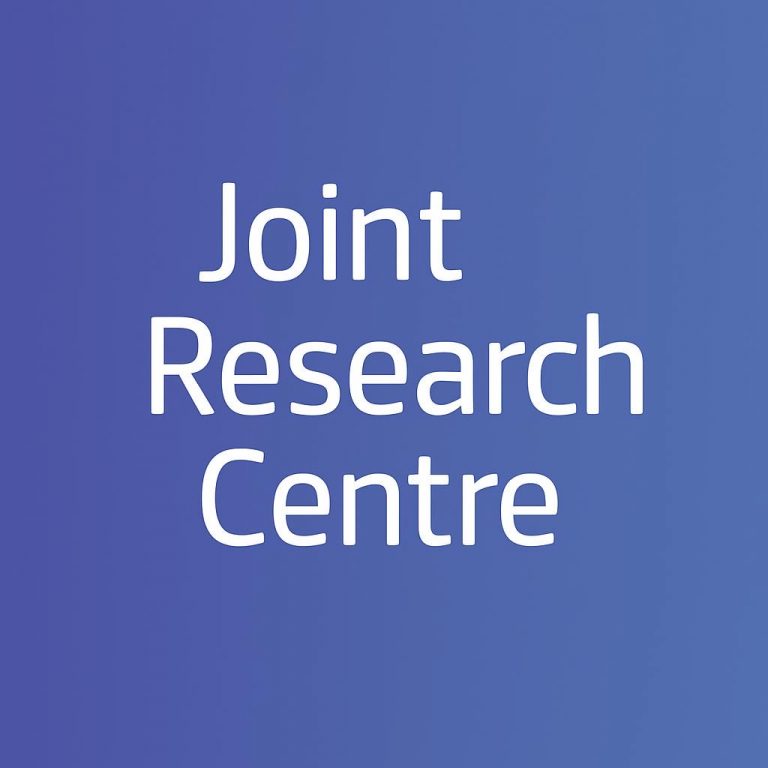
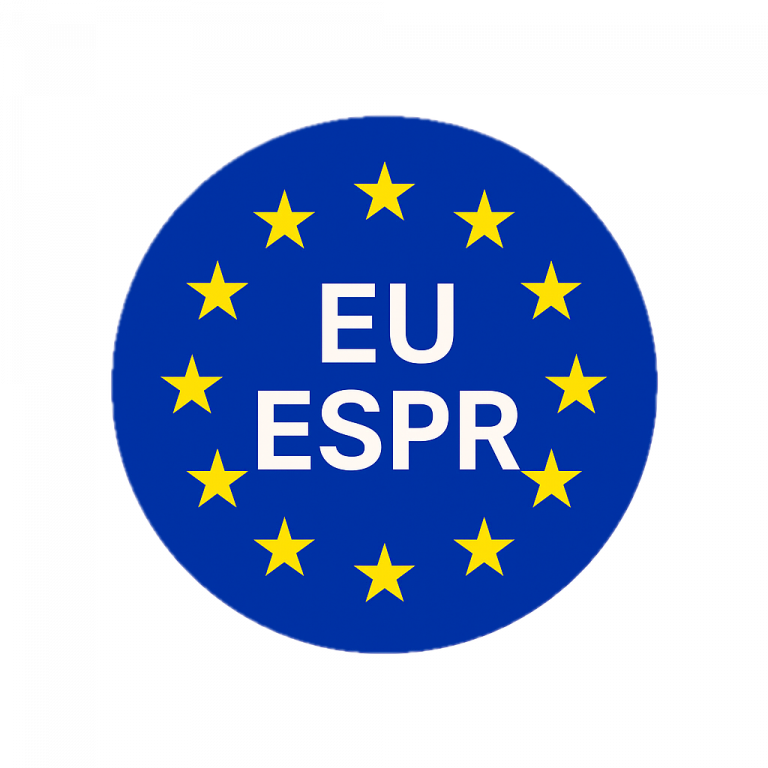
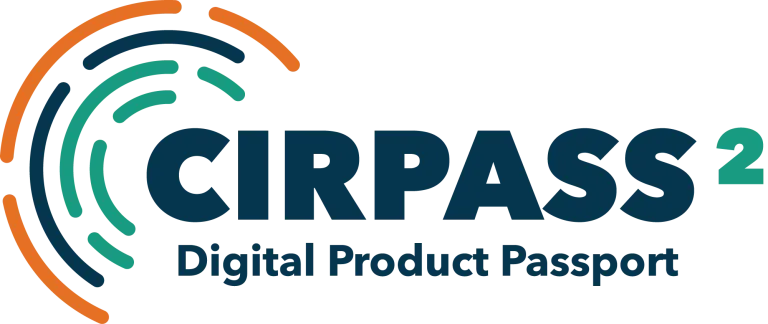


Why Reeco®
Sustainability demands real transparency across the value chain.
Reeco unifies data, certifications and regulations in one solution, enabling
brands, suppliers and partners to share verifiable information, cut audit time and reduce greenwashing risk.
Your AI guide to Reeco
Instant answers, cost/volume insights, and real-time recommendations.
*Privacy note: Designed for transparency. Insights rely on verified data; no commercial details are shown here.
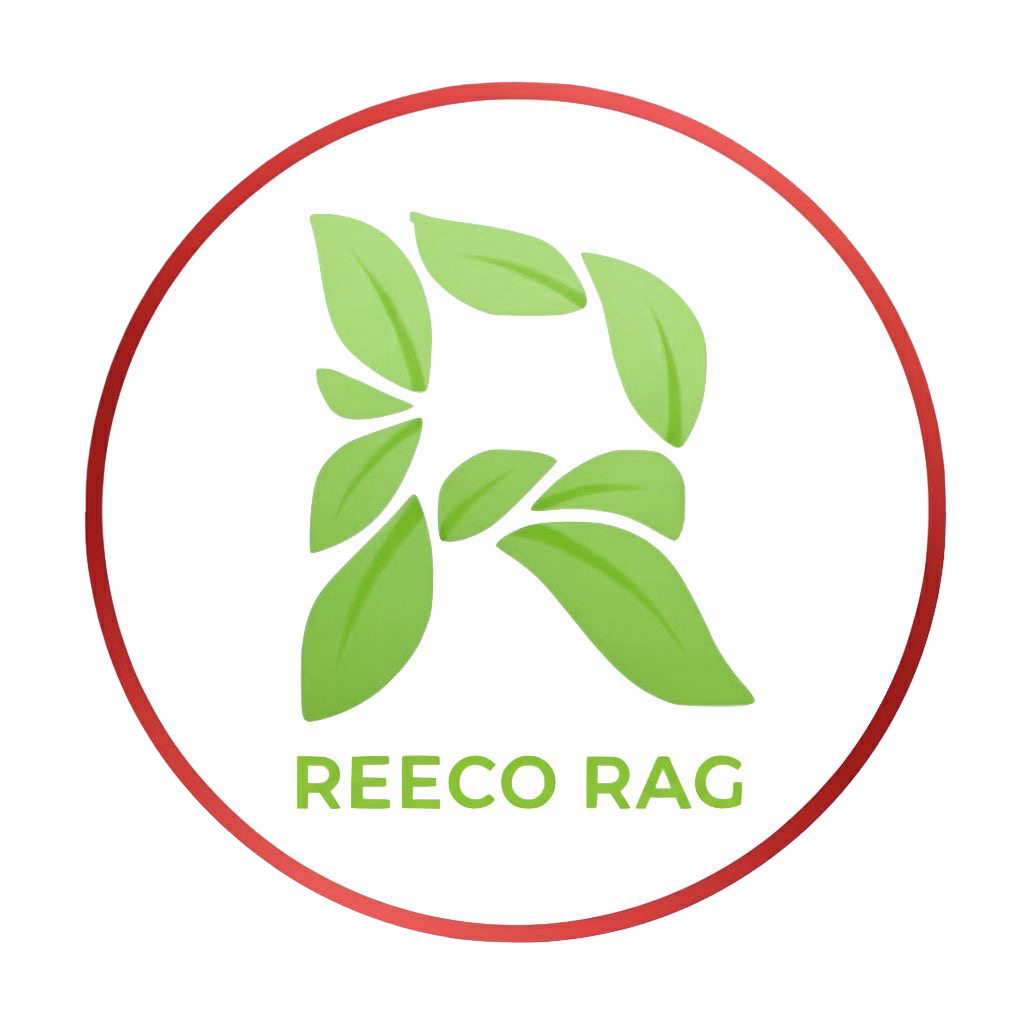

How it works
Verify environmental claims
Truth-check “recycled”, “organic”, “low impact” via recognized standards and accredited certifiers.
Track the chain of custody
QR + blockchain from origin to final assembly.
Generate Digital Product Passport
automated digital documents for compliance and audits.
Integrate data for environmental accounting
output ready for LCA, carbon footprint and CSRD/ESPR reporting.
Applicability of Reeco®
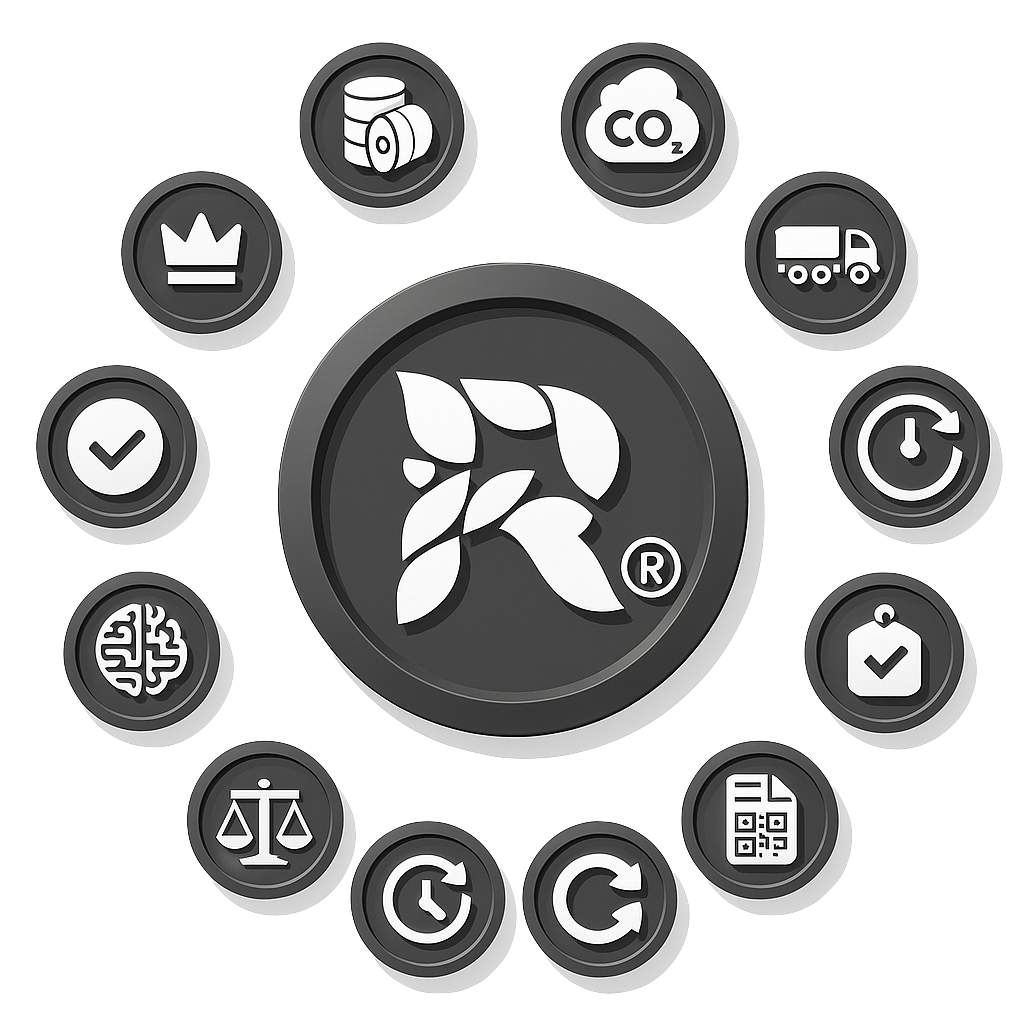
Environmental claim verification
Checks the truthfulness of declarations such as "recycled," "organic," or "low impact" using recognized standards.
Raw material traceability
Follows every raw material from its source to final assembly, with a verifiable chain of custody and reliable data.
LCA and impact analysis
Provides structured data to calculate carbon footprint, durability, reparability, and recyclability.
Supplier engagement
Offers dedicated access for suppliers to share verified data and accelerate collaboration.
Supply chain optimization
Centralizes information, reduces time and costs, and identifies operational inefficiencies throughout the supply chain
Supply chain optimization
Centralizes information, reduces time and costs, and identifies operational inefficiencies throughout the supply chain
Reduced greenwashing risk
Protects corporate reputation with documented and verifiable evidence of environmental claims.
Digital Product Passport (DPP)
Protects corporate reputation with documented and verifiable evidence of environmental claims.
Real-time monitoring
Provides real-time dashboards on the traceability and compliance status of products and components
Automated ESG reporting
Generates comprehensive reports for audits, stakeholders, and ESG reporting without consulting fees.
Regulatory compliance
Maintains compliance with ESPR, CSRD, EPR, and other requirements through constant updates and quick checks.
Regulatory compliance
Maintains compliance with ESPR, CSRD, EPR, and other requirements through constant updates and quick checks.
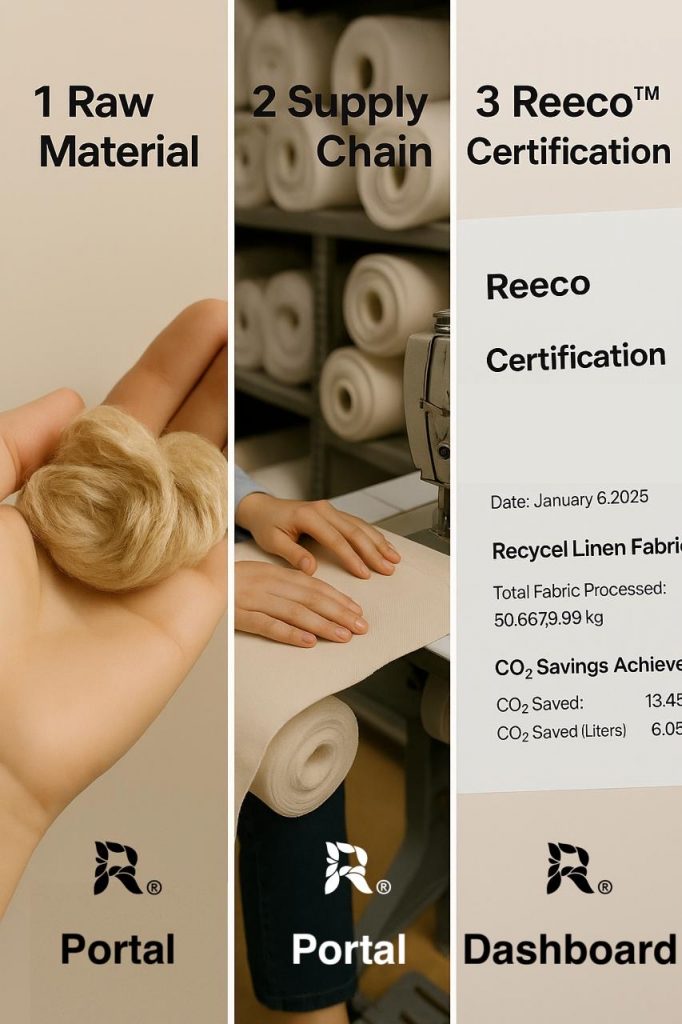
Reeco® Steps

One Platform. Multiple Benefits.
Product Lifecycle Management
Reeco follows each product
from sourcing to end of life,
tracking technical data,
materials and environmental
impacts to plan durability,
repairability and recyclability,
reducing waste and
improving circularity.
Data and Resource Optimization
Centralize supply chain data
to optimize processes,
reduce time and costs, and
identify inefficiencies and
opportunities for
improvement.
Compliance and ESG
Integrate ESPR, CSRD and
EPR requirements by
generating compliant reports
and dashboards for audits
and stakeholders, supporting
ESG reporting with verifiable
real-time data.
Supply Chain Engagement
Provide dedicated access for
suppliers, manufacturers and
brands, encouraging the
sharing of verified data,
increasing transparency and
reducing the risk of
greenwashing.
Who it is designed to work with
Reeco has been designed to work with all industries that need to demonstrate the traceability and sustainability of their products. It is ideal for:
Brands and manufactures
who want to ensure the transparency and compliance of their products, reducing the risk of greenwashing and improving corporate reputation.
Suppliers and processors
Who wish to provide their customers with verified chain-of-custody data and access markets that require high compliance standards.
Certification bodies and regulators
who need a centralized and reliable system to verify certifications, standards and regulations (ESPR,CSRD, EPR).
Technology partners
(e.g., ERP providers, environmental data management systems or LCA platforms) looking to integrate traceability and environmental data management features into their solutions.
Reeco & the European Union
We contribute to CIRPASS-2 (EU consortium for the Digital Product Passport) and collaborate with the European Commission’s Joint Research Centre (JRC, Valencia). Together we refine methods and data models for the EU DPP.
Our work focuses on three indices we designed for textiles:
Durability
Repairability
Recyclability
Reeco Benefits : Case Study
Case study — Reeco® verification on an international brand (2021–2024)
Summary
Reeco® audit with DPP and cross-checks on “20% recycled linen” claims. In 2025, non-compliances emerge for 2024 production.

By the numbers
- 656.309,51 Yards total fabric analyzed
- 44.21% non-compliant (290.164,32 Yards)
- 126.313,21 Yards: no certification
- 133.787,50 Yards: wrong/incomplete chain of custody
- 30.063,61 Yards: incorrect certified shipping dates
What Happened
- Real-time detection → immediate corrective actions by the brand
- End-to-end verified traceability + QR code with Digital Product Passport (DPP)
- Proprietary calculation of recycled grams per item
Regulatory risk (ECGT — EU Reg. 825/2024)
⚠ From 2026: potential fines up to 4% of turnover and seizure of non-compliant items.
Estimated economic impact for the brand
- Overcharge paid for non-compliant material (290,164.32 yd × ~$1.00/yd) → ~€ 266.951,17
- Re-labelling 250,000 garments (print + labor) → € 45,000.00
- Website/digital assets update → € 9,000.00
- Estimated total for the brand: € 320.951,17
Why it matters
Reeco® is not just a repository: continuous verification, integrated DPP and a grams-per-item metric to prevent greenwashing, reduce sanction
risk and protect brand value.

